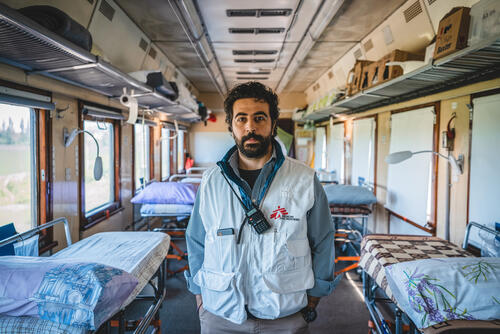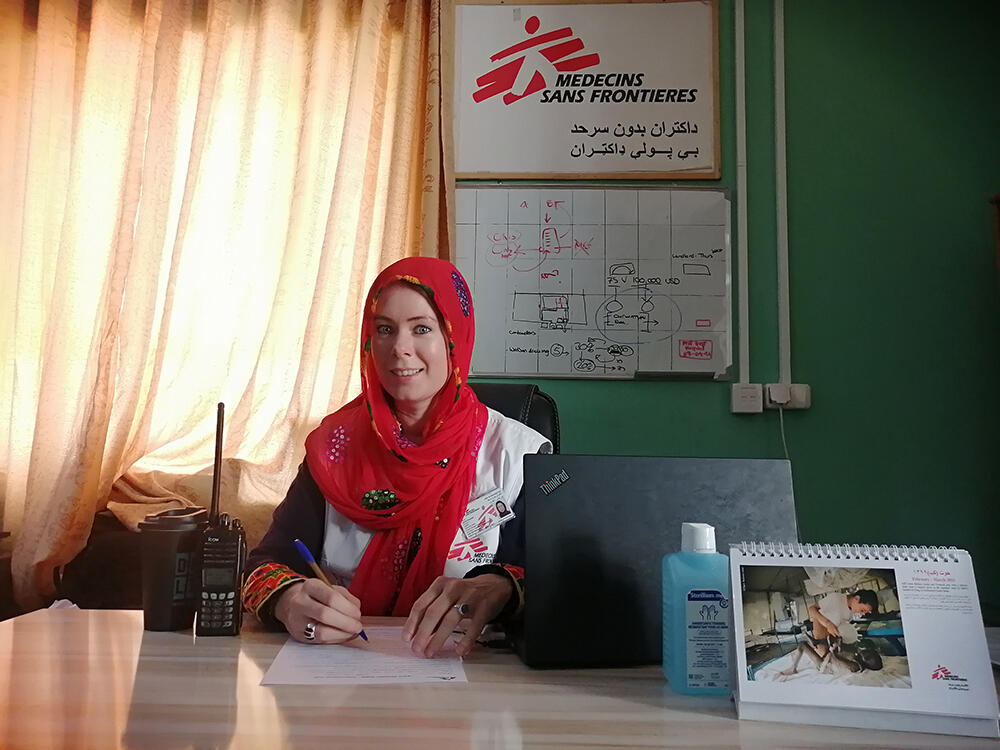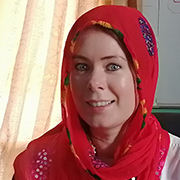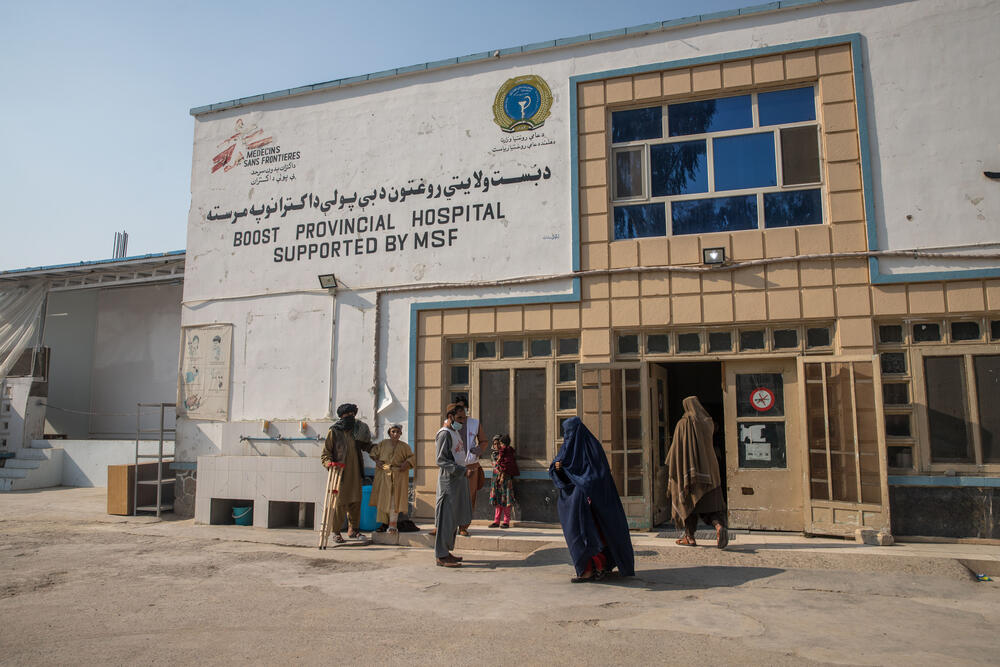From tech start-ups to conflict zones: My journey to becoming an MSF project coordinator
After returning from her fifth assignment with Médecins Sans Frontières / Doctors Without Borders (MSF), Sarah Leahy shares her journey to filling a crucial support and security role.
When you meet people and you say you work for MSF, they always say “Oh, are you a nurse or a doctor?” Everyone thinks it’s a bunch of doctors running a clinic somewhere far away.
Well, I’ve just returned from Afghanistan on my fifth assignment with MSF. I’m not a medic, but it is my job to coordinate some of these life-saving projects.
Finding MSF
I’d mainly worked in a lot of project management roles: small tech start-up companies, a few banks, arts management and a private members club. I’d had jobs in New York, Tokyo, and Hong Kong. I’d also studied Italian and French back in university.
“You’re the person linking everything. You have to be able to communicate and bring everyone together.”
I’d just had this really varied and random career path running projects, seeing them through to the end. But I had no experience in the humanitarian space.
I was used to working overseas a lot and being away from family, friends and home. But I was starting to realise I wanted a job that actually made a difference. I even went to an MSF event in Dublin, but I just thought it was so different from what I was doing.
Then, when I was in Kenya for work, I happened to meet a couple of MSF employees. They explained that there were lots of support roles in MSF where my skills could be useful. It turns out that one job in particular was by being a project coordinator, or PC.
I contacted the office in Dublin, and within a few months I was starting out as an HR and finance manager in the Central African Republic. I learned a lot about being part of a humanitarian medical organisation. And, after 6 months, I started covering for a project coordinator.
I’ve now been with MSF since 2017. It’s the longest time I’ve ever stayed in one organisation, and one that I really believe in. It just took me a while to get here.
What is a project coordinator?
An MSF ‘project’ is usually all the MSF activities happening in a certain district or area of a country.
That could be a healthcare centre, plus community-based activities and what we call mobile clinics. Or, it could be one really big hospital with thousands of staff.
As project coordinator, you’re responsible for all of the work happening within the project, usually working with a medical team leader who has oversight of the direct medical work. You oversee all the different departments and might also be a line manager for logistics and administration staff if it’s a smaller team.
That’s why I like the word “coordinator”. You’re the person linking everything. You have to be able to communicate and bring everyone together. Someone has to be in charge. Not as a ‘boss’, but to get things done.
It seems like a lot of responsibility, but you have a lot of support both in the country and from the MSF headquarters. If you work well with a good team, it takes the pressure off.

Daily life as a PC
Most places where you work can have a reasonable element of risk, so security management is a huge part of the PC role. You might find yourself negotiating with governments or armed groups. It’s fundamental.
“You might need to organise a medical evacuation at 2:00 am. That’s when you’ll need that extra 10 percent.”
On a typical day, when you arrive at the project, the first thing you’ll do is a handover meeting with the night shift and a full security check. You need to know if there are any problems in the local area, or if anything strange has gone on overnight.
Then, the day will involve a lot of meetings with the different departments. You might be working with the medical coordinator, HR, finance, logistics and supply management, as well as local authorities or perhaps the ministry of health. You may also need to talk with staff who need support.
There will inevitably be problems and challenges that you need to help solve. It’s a very busy role.
Taking care
It’s really important in a job like this to find ways to look after yourself, too.
You don’t want to burn out, because even in safer and quieter projects emergencies can happen. You might need to organise a medical evacuation at 2:00 am. That’s when you’ll need that extra 10 percent.
And, as you’re usually living with the other international staff, it’s important to make sure that you're all taking proper downtime, too. A lot of the responsibility is also on you for team building. You need to help keep that morale going.
Skills coming together
Most recently, I was in Afghanistan during the change of government.
I was project coordinator at MSF’s Boost Hospital in the city of Lashkar Gar. It’s one of our biggest and busiest worldwide.
For two weeks during the height of the fighting, we were sleeping in a bunker underneath the hospital and very close to the frontline. The team was exhausted, the internet was failing and there was a lot of pressure to make security decisions. It was all-hands-on-deck to keep everyone alive and it was pretty intense.
This was when all of those PC skills came together. You had to be very adaptable. And that’s what I am.
Work for MSF
We rely on a strong network of professionals to deliver life-saving medical aid.
Each year, MSF sends people from the UK overseas to carry out assignments alongside more than 55,000 locally hired staff.


